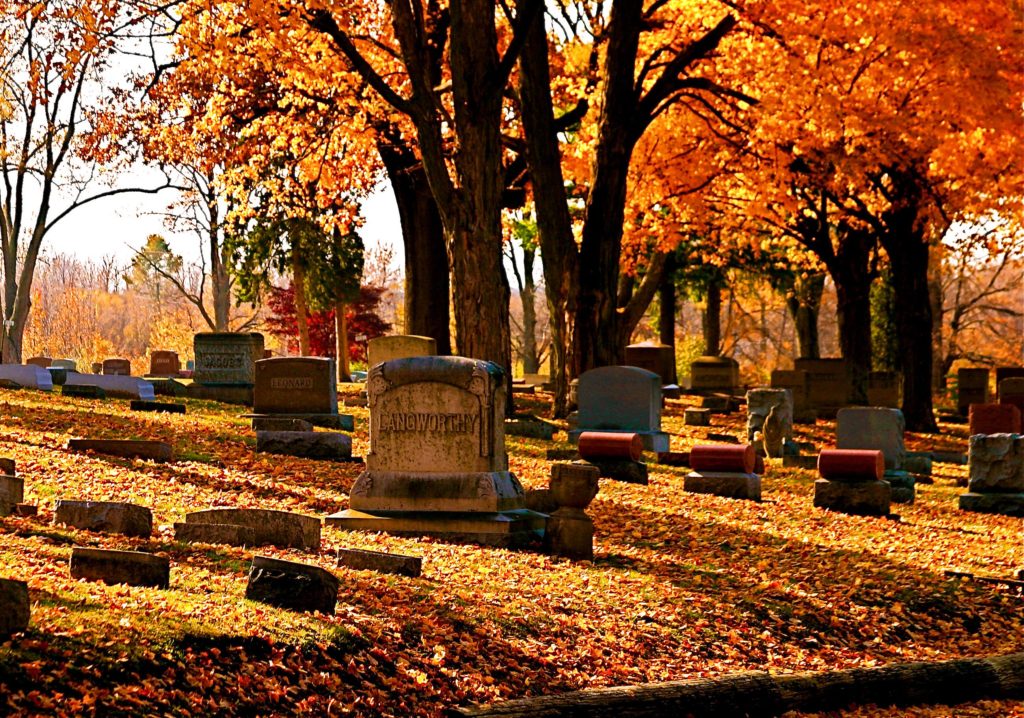
Spiritual Sunday
Autumn has returned to Sewanee, chilly and gorgeous, making Richard Eberhart’s poem “The Soul Longs to Return Whence It Came” seasonally appropriate. The poem helped shape the hike that Julia and I took yesterday afternoon.
It also brings to mind Sir Gawain and the Green Knight. The medieval author, perhaps thinking of the Black Plague in the not too distant past, grapples with the difference between pagan and Christian notions of death. The Green Knight, as a fertility figure, is so closely aligned with nature’s cycle of life that he cannot permanently die. Do Arthur and his knights have the same confidence in Christ’s promise of resurrection. If so, wouldn’t they be as willing to subject themselves to the axe blow as he is?
For the Green Knight, there is no separation between head and body, which is why he cannot be beheaded. For Gawain, by contrast, the mind intervenes. Or as Eberhardt puts it,
Then
The mind came like a fire, it
Tortured man, I thought of madness.
The mind will not accept the blood.
Before this moment, however, Eberhart’s speaker has experienced a powerful and ecstatic merging with the earth out of which he arose:
I was a being of feeling alone.
I flung myself down on the earth
Full length on the great earth, full length,
I wept out the dark load of human love.
In pagan adoration I adored her.
I felt the actual earth of her.
Victor and victim of humility,
I closed in the wordless ecstasy
Of mystery: where there is no thought
But feeling lost in itself forever,
Profound, remote, immediate, and calm.
I’m not entirely clear if the “her” is someone the poet has lost or the earth, but in some ways it doesn’t matter. After all, if they were once two, they are now merged into oneness.
Following this momentary connection, the speaker returns to himself, in part made self aware by the rustling of the leaves. Such imagery shows up in Odysseus’s journey to the underworld, where the rustling of the dead souls ultimately panics him so that he flees back to the familiar world. Maybe both Odysseus and Eberhart’s speaker fear being swallowed up permanently.
For a brief interval, however, the speaker has had an out-of-body experience. Or perhaps more accurately, an out-of-mind experience.
As the different elements of nature resume “their usual characters,” he walks away feeling he has experienced a mystic revelation. He offers up a prayer in gratitude:
Mother, Great Being, O Source of Life
To whom in wisdom we return,
Accept this humble servant evermore.
Here’s Eberhart’s poem:
The Soul Longs to Return Whence It Came I drove up to the graveyard, which Used to frighten me as a boy, When I walked down the river past it, And evening was coming on. I’d make sure I came home from the woods early enough. I drove in, I found to the place, I Left the motor running. My eyes hurried, To recognize the great oak tree On the little slope, among the stones. It was a high day, a crisp day, The cleanest kind of Autumn day, With brisk intoxicating air, a Little wind that frisked, yet there was Old age in the atmosphere, nostalgia, The subtle heaviness of the Fall. I stilled the motor. I walked a few paces; It was good, the tree; the friendliness of it. I touched it, I thought of the roots; They would have pierced her seven years. O all peoples! O mighty shadows! My eyes opened along the avenue Of tombstones, the common land of death. Humiliation of all loves lost, That might have had full meaning in any Plot of ground, come, hear the silence, See the quivering light. My mind worked Almost imperceptibly, I In the command, I the willful ponderer. I must have stood silent and thoughtful There. A host of dry leaves Danced on the ground in the wind. They startled, they curved up from the ground, There was a dry rustling, rattling, The sun was motionless and brittle. I felt the blood darken in my cheeks And burn. My eyes Telescoped on decay, I out of command. Fear, tenderness, they seized me. My eyes were hot, I dared not look At the leaves. A Pagan urge swept me. Multitudes, O multitudes in one. The urge of the earth, the titan Wild and primitive lust, fused On the ground of her grave. I was a being of feeling alone. I flung myself down on the earth Full length on the great earth, full length, I wept out the dark load of human love. In pagan adoration I adored her. I felt the actual earth of her. Victor and victim of humility, I closed in the wordless ecstasy Of mystery: where there is no thought But feeling lost in itself forever, Profound, remote, immediate, and calm. Frightened, I stood up, I looked about Suspiciously, hurriedly (a rustling), As if the sun, the air, the trees Were human, might not understand. I drew breath, it made a sound, I stepped gingerly away. Then The mind came like a fire, it Tortured man, I thought of madness. The mind will not accept the blood. The sun and sky, the trees and grasses, And the whispering leaves, took on Their usual characters. I went away, Slowly, tingling, elated, saying, saying Mother, Great Being, O Source of Life To whom in wisdom we return, Accept this humble servant evermore.

